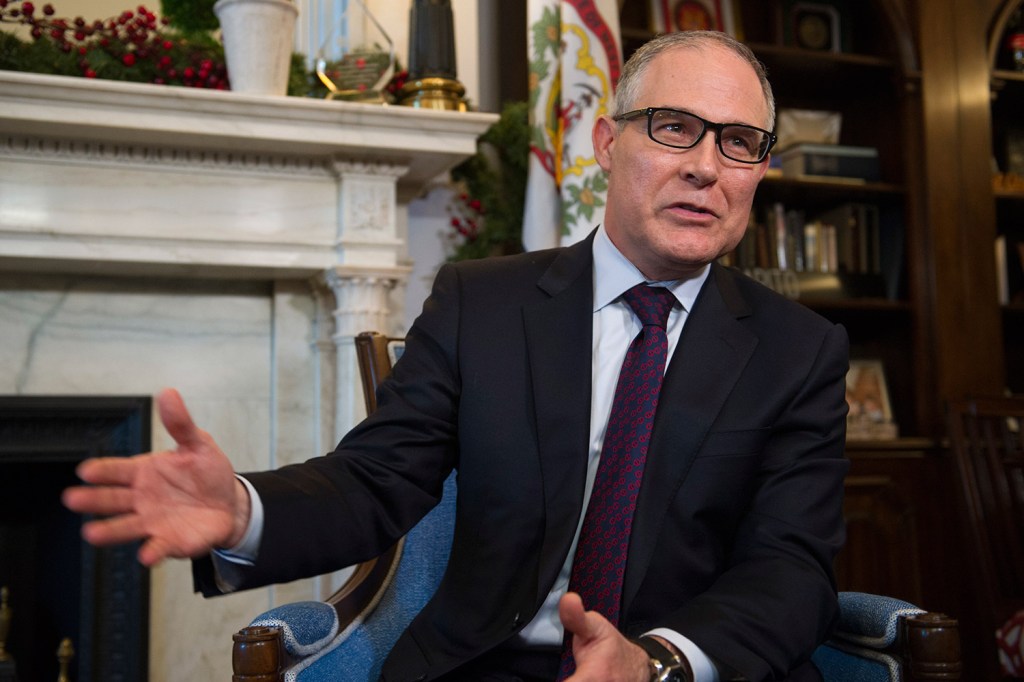Few states rival Maine when it comes to protecting the environment. As such, it is my hope the Senate will move swiftly this month to confirm Scott Pruitt as the next administrator of the Environmental Protection Agency. Doing so will ensure the EPA’s reform into a constructive partner in preserving Maine’s air, land and water without imposing unnecessary, costly burdens on our state’s residents.
Pruitt, currently the Oklahoma attorney general, is a respected constitutionalist and a solid choice. His leadership will restore the EPA back to its proper role and away from its current abuses of authority, which have caused direct harm to the citizens of Maine.
The Clean Water Act is a prime example of how the EPA’s reach is working against our farming communities. When Congress gave the EPA the authority to regulate “navigable waters,” they didn’t expect EPA bureaucrats to expand the definition of a “waterway” through its proposed Waters of the U.S. Rule by including everything from an irrigation ditch to a minor field depression that collects rainfall. Maine’s Department of Environmental Protection opposed this rule, known as WOTUS, arguing it was not based on navigable waters, was bureaucratic and unclear, and exceeded the agency’s authority.
Our state’s potato, blueberry and organic farmers say WOTUS would force them to obtain permits for small drainage ditches or ponds and would impair their ability to reclaim land for farming. At a time when we see a resurging desire for locally grown organic produce, many of these small farms might not survive an unneeded regulatory assault.
When EPA Administrator Gina McCarthy visited Maine in late 2015 to meet with farmers who opposed these burdensome regulations, she promised that change was coming. McCarthy acknowledged her agency and the U.S. Army Corps of Engineers had to do a better job of clarifying the rule and how it would be enforced.
“[T]he proof is in the implementation,” said McCarthy, “and we really need to be very clear about how the Army Corps and the EPA are going to implement this rule.” But since McCarthy’s visit, nothing has been done to help our farmers and small-business owners who are still wondering how they can ever comply with this costly new rule, which will do little to improve water quality.
And farmers are not alone in their concern. Due to the unclear nature of rules regarding fertilizer application or drainage of land, Maine’s forestry industry, commercial developers and even golf course owners are anxious over the EPA’s expanded application of the Clean Water Act.
The agency’s meddling reach into Maine is also impacting the state’s biomass industry through the treatment of biomass under the EPA’s climate and renewable energy rules. For example, the carbon contained in tree wood is rightly deemed to be in the existing carbon cycle, but various environmental groups pushed EPA to ignore this fact. As result of rules requiring carbon-neutral operations of biomass plants in the state, some have shut down.
Scott Pruitt has been an effective steward of the natural resources of his state. For years, an agreement between Arkansas and Oklahoma to reduce pollution in the Illinois River was deadlocked in litigation and few gave it any chance of being resolved. But Pruitt successfully reached a bipartisan agreement with his Democratic counterpart in Arkansas to enhance the water quality of the river. In another instance, Pruitt demonstrated he’s not afraid to take on bad actors in the oil and gas industry when they illegally profited off pollution in his state.
When he testified before Congress in 2015, Pruitt remarked that the EPA is an important agency that plays a vital role in protecting our environment. His comment then signaled his intention to restore the EPA to its core mission of responsibly protecting our air, land and water resources.
As EPA administrator, Pruitt will be both a steadfast and sensible environmental caretaker. Protecting our natural resources while remaining sensitive to the need for industry and economic growth, and at the same time maintaining respect for the Constitution, is a tough balancing act. Scott Pruitt’s track record proves him to be uniquely qualified for the post.
Most importantly, Scott Pruitt’s leadership at EPA will help Maine.
Send questions/comments to the editors.


